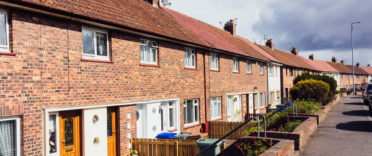We bought a house 16 months ago and put our own one on the market thinking it would go fairly quickly, however that was not the case. We are still living in our "main" house but would like to move. Would we have to pay CGT on the house we leave when we sell it if it has not been rented out? People are giving us various opinions.
My response
Whether you pay tax on a property which you have lived in comes down to one key tax relief – called Private Residence Relief. This is a relief I've covered in a number of articles as it can save you a shed load of tax.
Ordinarily if you were to sell a property any profit which you make is liable to Capital Gains Tax (CGT - currently at a rate of 18% for basic rate income tax payers and 28% for higher rate income tax payers). However, you do not pay capital gains tax on the sale of your principal residence i.e. your main home – this is known as Private Residence Relief. If you did then every time you moved home you’d be landed with a huge tax bill.
Obviously, if you only own one house and live in it then this is your principal residence. But if someone has a second home or an investment property they can actually choose which is their principal residence and notify HMRC accordingly. You have to actually live in your nominated principal residence to qualify for Private Residence Relief otherwise the tax man will be after you.
Exploiting the rules
Interestingly, a rule under Private Residence Relief often called the ‘’time to sell rule’’ allows a person to move out of their current home and into a newly purchased house without selling the previous one. As long as they sell the first house within 3 years of vacating it then the sale would still be CGT free. So this answers your question as to whether your soon to be former home needs to be rented out – the answer is no.
In theory, you could change your principal residence to that of your new home (i.e. move) now and then sell your old home. As long as you sold it within 3 years of changing your principal residence the sale of your old home should be tax free. But of course the problem you now have is that after you move and when you came to sell your new home part of any gain may be liable to capital gain tax due to the initial period of non-principal residence.
Fortunately, if you do not occupy a new home when you acquire it because you are not able to sell your old home, or you need to carry out refurbishment, you can treat the first 12 months as if the house had been your only or main residence in that period, despite living elsewhere. In exceptional circumstances, HMRC may allow you to treat a longer period (up to a total of two years) in the same way - which would be the ideal scenario for you given the time that has elapsed. I suggest that you contact HMRC and explain your situation
For more details please read HMRC's guide to Private Residence Relief – which gives some neat examples. Remember you technically have to live in a property for it to be classed as your principal residence not just pretend you do.
Best Wishes
Damien
The material in this email, the Money to the Masses website, associated pages / channels / accounts and any other correspondence are for general information only and do not constitute investment, tax, legal or other form of advice. You should not rely on this information to make (or refrain from making) any decisions. Always obtain independent, professional advice for your own particular situation. See full Terms & Conditions and Privacy Policy.
Image: Danilo Rizzuti / FreeDigitalPhotos.net





